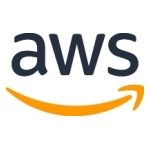Q&A with David Hunter, Ukash
Ukash CEO Talks Expanded Services, Global Growth
By Adam Perrotta, Assistant Editor
 Since 2001, London-based Ukash has been enabling cash-preferred shoppers to make purchases online with prepaid vouchers sold through retail POS locations. Since its founding, the company has expanded its network to 460,000 points of purchase in nearly 60 countries around the world. But Ukash is no longer just growing its footprint; it’s in the midst of a transformation.
Since 2001, London-based Ukash has been enabling cash-preferred shoppers to make purchases online with prepaid vouchers sold through retail POS locations. Since its founding, the company has expanded its network to 460,000 points of purchase in nearly 60 countries around the world. But Ukash is no longer just growing its footprint; it’s in the midst of a transformation.
The company recently has undertaken a slate of major new initiatives, expanding its Paybefore Award-winning platform to offer a full spectrum of services to cash-preferred consumers. In recent months Ukash has unveiled a new service that enables users to turn their vouchers back into cash at PayPoint POS locations and Bank Machine ATMs in the U.K., as well as inking a deal with MoneyGram for voucher-based P2P funds transfers. And last October, the company moved into the U.K. gift card market with the launch of its Gift Card Shop, enabling users to purchase gift cards at dozens of online and brick-and-mortar retailers. Meanwhile, the company has continued to increase its presence in key markets across the globe, including Italy, via a partnership with prepaid distributor Epipoli, as well as the Netherlands and Brazil.
Ukash CEO David Hunter spoke with Paybefore about the company’s expanded mission, its recent moves—and what the future might bring.
Paybefore: What is the overall driving concept behind Ukash’s recent growth in terms of new product and services?
David Hunter: Our strategy has developed somewhat over the past couple of years. Fundamentally this is a reflection of our new mission; to give people the power to use their cash in the connected world. Historically, Ukash was focused purely on allowing people to spend cash online with Ukash acceptance merchants. This has served us well, as we now bring thousands of Web retailers and millions of cash consumers together in 57 countries on six continents. However, there are a number of growth vectors beyond geographic expansion. For example, point of sale expansion in-country, new sector penetration and, of crucial importance to the strategy, new products and services that utilize the Ukash network.
Paybefore: What was the rationale behind the Ukash Out program? Was it driven by customer demand to turn leftover funds on vouchers back into cash?
DH: With the new cash-withdrawal services via PayPoint and Bank Machine, we see many opportunities for use. Customers who deposit with Ukash into a gaming account can now withdraw their winnings with Ukash and, once verified, cash out via these services. We also envisage Ukash being adopted for P2P and micro-merchant payments, almost like a cash version of PayPal. Other cases are refunds, competition prizes, emergency cash for lost or stolen credit and debit cards, cash salary disbursements, etc.
However, we also are aware of the added risks associated with such services. We are, therefore, very focused on making sure that our extensive AML systems, processes and controls are always one step ahead of potential malicious use. In recent years we’ve invested in manual and automated KYC, device fingerprinting, IP geolocation, and real-time velocity monitoring systems to name but a few of the tools deployed in this regard.
Paybefore: How big of a portion of your business is in online gaming, generally? As opposed to online shopping?
DH: We handle around $500 million for consumers depositing cash into and out of online gaming (licensed and regulated) Websites. This still forms a large part of our business, but is beginning to plateau. The other key sectors for us are social games, e-retail, reload and top up, telecoms, travel and increasingly now the FX and funds transfer businesses. With the addition of the new products and services described above, it won’t be long before gaming is less than 50 percent of our overall payment volume.
Paybefore: Your recent partnership with MoneyGram enables customers to use their Ukash vouchers to transfer funds. Why did you decide to get into the funds transfer arena? How does it complement your existing service?
DH: We are fusing the best components of the physical remittance world—proximity, immediacy, simplicity and cash acceptance—with the best of the online remittance world—speed, cost advantage, repeatability, convenience, relationship management and channel choice. This unique combination will add value to both MoneyGram and Ukash in a number of ways. Ukash codes are printed on demand at POS terminals in exchange for cash tendered. The whole retail experience is typically completed in 15 to 20 seconds, whereas it can take seven or eight minutes to complete a money transfer in-store. Verified customers now will be able to remit the Ukash voucher value instantly to MoneyGram’s entire network of 300,000-plus locations around the world. Between Ukash and MoneyGram, we boast about 800,000 locations for the convenience of new and prospective remittance customers globally. This size and scale is simply unprecedented in the funds transfer market currently.
Paybefore: And what about gift cards? What was the basis behind the gift card mall initiative? 
DH: Adding the gift card mall to our Website was a relatively simple innovation that gives our users hundreds of extra retail brands where they can spend their Ukash online and/or buy that last-minute gift for friends and loved ones. A good example of how Ukash consumers are using the gift card mall for their own use is Amazon. Currently you can’t spend Ukash directly on Amazon, but you can now very simply buy Amazon vouchers with Ukash via the gift card mall. The mall has been live in the U.K. for approaching a year and we’re seeking partners in other countries to host and supply the mall, to accelerate global rollout.
Paybefore: In terms of geographic expansion, how do you identify markets to enter?
DH: There’s quite an art to identifying new markets. Having picked most of the “low hanging fruit,” it’s harder than ever to ensure that entering a new market is worthwhile. A candidate country must have good Internet penetration, evidence of strong or latent e-commerce demand, a freely tradable currency, geopolitical stability, “friendly” financial regulation and, ideally, existing mobile phone top-up infrastructure through point-of-sale networks.
Paybefore: Do you always partner with local players?
DH: When we identify a candidate country, we consider how we can best and most profitably manage it. This may be remotely from London, through a local partnership or with a full-time country manager. Local partnerships have proven to be very successful in certain remote markets, but it’s not always easy to get the balance right. It’s somewhat like creating a master franchise, insofar as it’s a long term win-win relationship where we entrust our brand with another company, and they invest in our business model for long-term benefits.
Paybefore: Where to next? Any plans to enter the U.S.?
DH: We are currently focusing on further rollout in Latin America, especially beefing up our presence in Brazil and Mexico, while adding countries like Chile and Peru very soon. We’re always on the lookout for suitable new partners around the world, and of particular interest for our next phase of expansion are Middle East/North Africa, India, Asia and Sub-Saharan Africa.
We continue to look at the U.S. market with interest but have actively decided thus far not to enter. This is mainly due to the regulatory requirements for electronic money businesses like Ukash. The analogy I use is that we are currently active in 50-plus countries globally, and entering the U.S. is not simply adding one new country, but another 50 countries. This is especially true given the requirement to have state-by-state money transmitter licenses, or a federal license to issue electronic money and safeguard consumer funds. But we remain open to potential partnerships in the U.S., and I strongly believe the new Ukash products and services would be well-received there, especially in the areas of cash remittance, disbursements, P2P and cardless ATM.










































